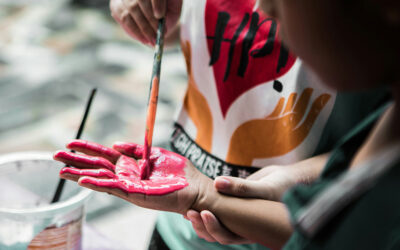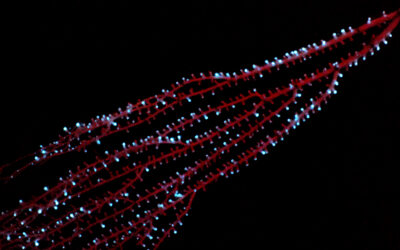Antonio Facchetti is Adjunct Professor of Chemistry at Northwestern University. An avid supporter of the idea that no one can be an expert in everything, Antonio is mainly interested in opto-electronic materials and devices, and his major goal is that of making real and commercial products starting from organic transistors. As a side project, he is also dedicating his time and research efforts towards the applications of unconventional electronic materials, and particularly organic semiconductors, at the interface with biology and robotics.
In his interview with us, he shared his excitement about the idea of “holding a product made with a material I contributed to develop” together with his fascination for the complexity entailed in the process that leads from a new material to product design and development.
Bearing in mind his passion for material discovery and the engineering of product development, it should come as no surprise that Antonio developed his career by crossing the border between academia and industry. In his view, there are tremendous benefits to experiencing both, sometimes even simultaneously. This, however, requires a lot of energy to respond to the specific needs of each part and to manage possible conflicts of interest and different expectations (e.g., how to balance the need of dissemination of scientific concepts typical of academic research with that of protecting research findings and technologies of the corporate world).
He is currently working with around one hundred collaborators from both the academic and the corporate worlds. While benefiting from such great and diverse network, Antonio points to his Ph.D. and post-doc advisors, Professor Giorgio Pagani at the University of Milan and Professor Tobin Marks of Northwestern University, respectively, as the main influences in his career and thinking. Despite their different approaches to chemistry and science, both taught Antonio how to work hard and efficiently, and how important is, in his words, “to be curious, no matter what it costs.”
Antonio probably owes his career and great achievements to being curious. He recalled having always been attracted by tiny things in nature that are not accessible to the naked eye. When, at the age of seven, he read that atoms are the smallest material constituents, he became immediately interested in chemistry. His curriculum, multiple awards, and recognition speak for themselves.
When asked about the most important scientific discovery of all time and what he sees as the most exciting developments in his field of research, Antonio gave us his own perspective. He believes that the advent of microelectronics has made possible all discoveries and advances of modern science. Looking to the future, development of new soft materials for electronics that can perform functions typically provided by very hard and more traditional materials represents an exciting goal. “I do believe that moving electronics to conformal, stretchable and biocompatible platforms is the new frontier for exciting science and new products,” he said
Along with his passion for chemistry and science, Antonio loves cooking — a hobby that may have its origin in a time when, while studying chemistry in Milan, he was working as a cook in a restaurant. His students and colleagues enjoy being invited to his Christmas and summer parties.
To learn more about progress in materials development for stretchable and wearable electronic skin and electronic textile devices, have a look at the review article by Antonio Facchetti and his collaborator in the Advanced Materials Hall of Fame virtual issue.

















